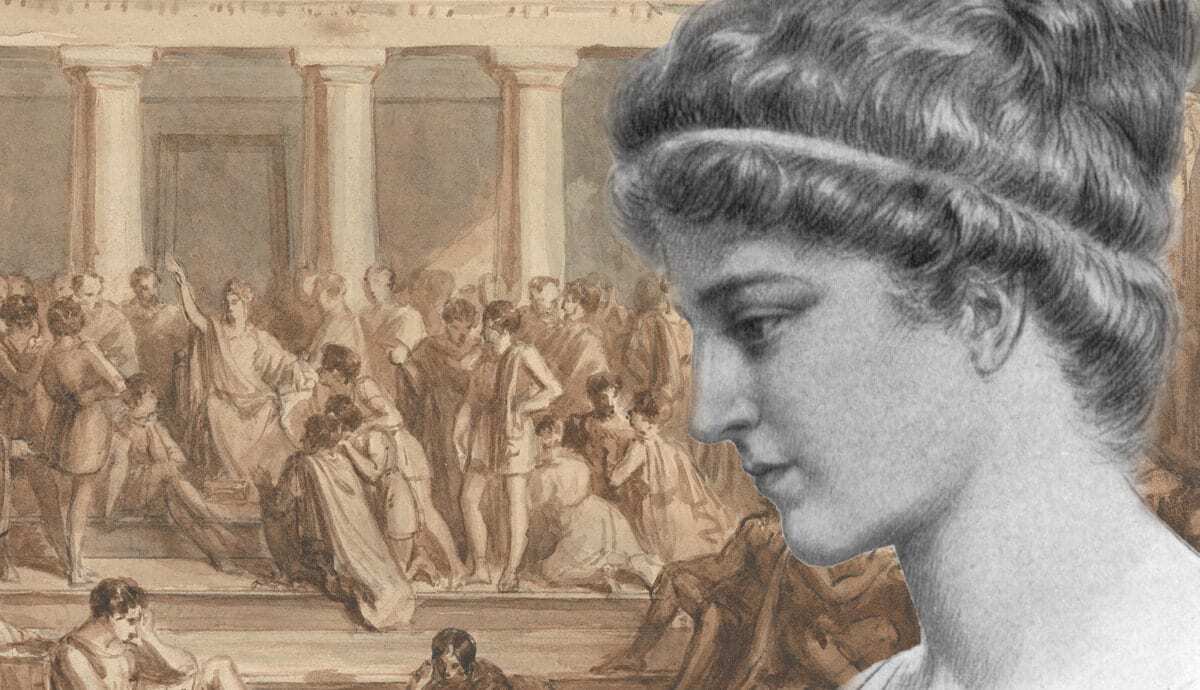
Hypatia of Alexandria was a brilliant mathematician, philosopher, and astronomer who lived in ancient Egypt. Born around 360 AD, she became one of the most influential scholars of her time. Hypatia's work in mathematics and philosophy left a lasting legacy, inspiring countless generations. She was the head of the Neoplatonic school in Alexandria, where she taught students from all over the Mediterranean. Despite her achievements, Hypatia faced significant challenges, including political and religious turmoil. Her tragic death in 415 AD marked the end of an era for classical scholarship. Hypatia's life and contributions continue to captivate historians and scholars, making her a timeless figure in the history of science and philosophy.
Key Takeaways:
- Hypatia of Alexandria, a brilliant mathematician and philosopher, made groundbreaking contributions to mathematics and astronomy, inspiring future generations of scholars and feminists.
- Despite facing tragic end, Hypatia's legacy as a symbol of intellectual freedom and pursuit of knowledge continues to inspire modern science and popular culture, leaving a lasting impact on the world.
Early Life and Background
Hypatia of Alexandria, a renowned philosopher, mathematician, and astronomer, lived during a time of great intellectual and cultural change. Her life and work continue to inspire many.
- Hypatia was born around 360 AD in Alexandria, Egypt.
- Her father, Theon of Alexandria, was a well-known mathematician and philosopher.
- Theon educated Hypatia, ensuring she received a comprehensive education in mathematics, astronomy, and philosophy.
- Hypatia was one of the first women to make significant contributions to the fields of mathematics and astronomy.
Academic Contributions
Hypatia's work in mathematics and astronomy was groundbreaking. She made several important contributions that have had a lasting impact.
- Hypatia wrote commentaries on the works of Diophantus, Apollonius, and Ptolemy.
- She is credited with editing the existing version of Ptolemy's "Almagest," a crucial astronomical text.
- Hypatia developed the concept of the hydrometer, an instrument used to measure the density of liquids.
- She taught at the Neoplatonic school of philosophy in Alexandria, where she attracted many students from different parts of the world.
Philosophical Influence
Hypatia's philosophical teachings were deeply rooted in Neoplatonism, a school of thought that emphasized the role of the intellect and the pursuit of truth.
- Hypatia was a follower of Plotinus, the founder of Neoplatonism.
- She believed in the importance of rational thought and the pursuit of knowledge.
- Hypatia's teachings influenced many prominent philosophers, including Synesius of Cyrene.
- Her work emphasized the unity of all knowledge, bridging the gap between science and philosophy.
Personal Life and Character
Despite living in a male-dominated society, Hypatia's intellect and character earned her respect and admiration.
- Hypatia was known for her beauty, intelligence, and eloquence.
- She remained unmarried, dedicating her life to her studies and teaching.
- Hypatia was a respected public figure, often consulted by political leaders and scholars.
- She was known for her modesty and humility, despite her significant achievements.
Tragic End
Hypatia's life came to a tragic end, reflecting the turbulent times in which she lived.
- Hypatia was murdered in 415 AD by a mob of Christian zealots.
- Her death was a result of political and religious tensions in Alexandria.
- Hypatia's murder marked the decline of the intellectual and cultural life of Alexandria.
- Her death is often seen as a symbol of the conflict between science and religion.
Legacy and Impact
Hypatia's legacy continues to inspire scholars, feminists, and intellectuals around the world.
- Hypatia is considered one of the first female mathematicians and astronomers.
- Her life and work have been the subject of numerous books, films, and plays.
- Hypatia's story has inspired many women to pursue careers in science and mathematics.
- She is often seen as a symbol of intellectual freedom and the pursuit of knowledge.
Hypatia in Popular Culture
Hypatia's life and legacy have been depicted in various forms of popular culture, highlighting her enduring influence.
- Hypatia was portrayed by Rachel Weisz in the 2009 film "Agora."
- She has been the subject of several novels, including "Hypatia" by Charles Kingsley.
- Hypatia's story has been adapted into plays, such as "Hypatia" by G. Stuart Ogilvie.
- Her life has inspired numerous works of art, including paintings and sculptures.
Hypatia's Influence on Modern Science
Hypatia's contributions to mathematics and astronomy have had a lasting impact on modern science.
- Hypatia's work on conic sections influenced the development of calculus.
- Her commentaries on Diophantus' "Arithmetica" helped preserve and transmit ancient mathematical knowledge.
- Hypatia's teachings on astronomy laid the groundwork for future discoveries in the field.
- Her emphasis on rational thought and empirical observation continues to be a cornerstone of scientific inquiry.
Recognition and Honors
Hypatia's contributions have been recognized and honored in various ways throughout history.
- Hypatia has been honored with a crater on the moon named after her.
- Several academic institutions and organizations bear her name, including the Hypatia Trust.
- Hypatia's legacy is celebrated annually on March 15th, known as Hypatia Day, to honor her contributions to science and philosophy.
Hypatia's Lasting Legacy
Hypatia of Alexandria stands as a symbol of knowledge, courage, and resilience. Her contributions to mathematics, astronomy, and philosophy continue to inspire scholars and enthusiasts alike. Despite facing immense challenges, she remained dedicated to her work and her students, leaving an indelible mark on history. Her tragic end underscores the perils faced by those who challenge societal norms, yet her legacy endures, reminding us of the importance of intellectual freedom and the pursuit of truth. Hypatia's story is a testament to the enduring power of education and the human spirit's quest for understanding. As we reflect on her life, we are reminded of the value of curiosity and the impact one individual can have on the world. Hypatia's legacy is not just a relic of the past but a beacon for future generations.
Frequently Asked Questions
Was this page helpful?
Our commitment to delivering trustworthy and engaging content is at the heart of what we do. Each fact on our site is contributed by real users like you, bringing a wealth of diverse insights and information. To ensure the highest standards of accuracy and reliability, our dedicated editors meticulously review each submission. This process guarantees that the facts we share are not only fascinating but also credible. Trust in our commitment to quality and authenticity as you explore and learn with us.


